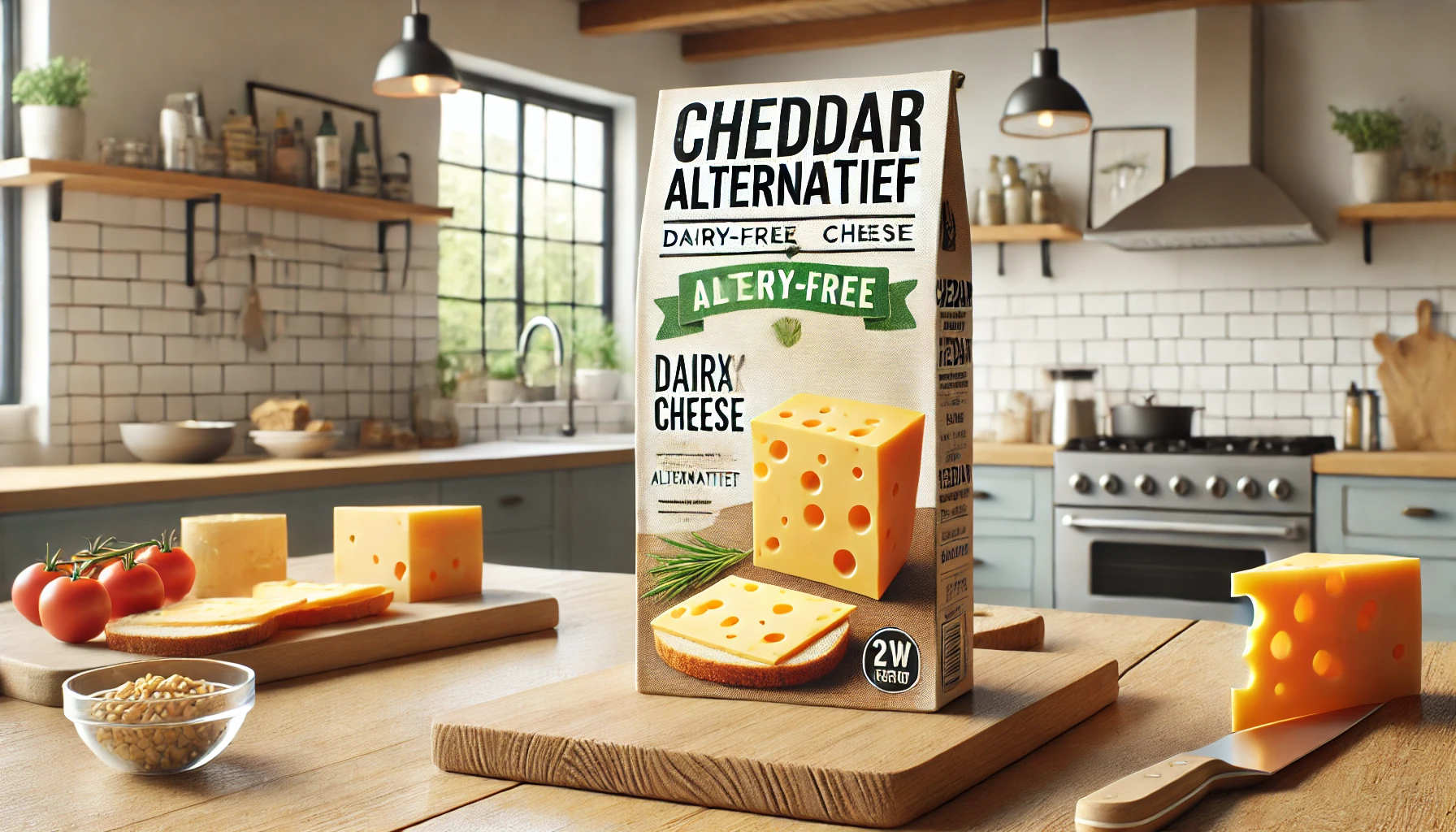Alternatives for cheddar
Cheddar is a popular cheese with a spicy and creamy taste, often used in sandwiches, burgers, and oven dishes. If you don't have cheddar, there are several cheeses that offer a similar taste and texture.
What is cheddar?
Cheddar is a hard cow's milk cheese, originally from England. It varies in taste from mild to extra spicy, depending on the ripening time. In the Netherlands, cheddar is often used for toasted sandwiches, cheese sauces, and as a topping on dishes such as macaroni and cheese. Internationally, it is one of the most consumed cheeses, loved for its versatility.
If you don't have cheddar, there are cheeses with similar properties that can serve as a replacement.
Alternatives for cheddar
- Gouda cheese: A versatile cheese with a milder taste, ideal for toasted sandwiches and oven dishes.
- Gruyère: This Swiss cheese offers a nutty and creamy taste, perfect for cheese fondue or sauces.
- Emmentaler: A mild cheese with a slightly nutty taste, suitable for sandwiches and salads.
- Monterey Jack: This American cheese is similar in texture to cheddar and melts well, ideal for Mexican dishes.
- Parmesan cheese: For a more intense taste, you can use grated Parmesan in pasta or oven dishes.
- Plant-based cheese: For a vegan option, you can choose plant-based cheese with a similar texture and taste.
Cheddar is a versatile cheese, but alternatives like Gouda cheese, Gruyère, or Monterey Jack offer similar properties. Use these options to prepare your favorite dishes without cheddar.
Are you missing an alternative?
Tip our editors via this form.
Thanks in advance.
Why Do People Seek an Alternative to Cheddar Cheese?
There are several reasons why someone might be looking for an alternative to cheddar cheese:
- Dietary restrictions: People with lactose intolerance, milk allergy, or those following a vegan diet, cannot enjoy cheddar cheese and thus need to look for alternatives.
- Taste preferences: Everyone has their own taste preferences. Some people may not appreciate the strong, rich taste of cheddar cheese and are looking for milder alternatives.
- Health considerations: While cheddar cheese is a good source of protein and calcium, it also contains a lot of saturated fat and sodium. People who want to limit their intake of these nutrients may look for healthier alternatives.
- Price: Cheddar cheese can be relatively expensive, especially if you opt for high-quality variants. People on a tight budget may be looking for cheaper alternatives.
Top 5 Frequently Asked Questions about Cheddar Cheese
1. What exactly is cheddar cheese?
Cheddar cheese is a type of hard, aged cheese that originally comes from England, but is now popular worldwide. It is known for its rich, sharp taste and creamy texture.
2. How can I use cheddar cheese in recipes?
Cheddar cheese is versatile and can be used in a variety of dishes, including sandwiches, burgers, macaroni and cheese, quiches, pizzas, and more. It can also be grated over soups or salads, or served as part of a cheese board.
3. What are good substitutes for cheddar cheese?
There are many possible alternatives to cheddar cheese, depending on your specific needs and preferences. Other types of cheese such as Gouda or Emmental can provide a similar texture, while vegan cheese alternatives or dairy-free options like nut cheese may be suitable for people with dietary restrictions.
4. Is cheddar cheese healthy?
Cheddar cheese is a good source of protein, calcium, and some other nutrients. However, it also contains a lot of saturated fat and sodium, and it can be high in calories, so it's best to consume it in moderation, especially if you're following a diet that is low in these nutrients.
5. Can I make cheddar cheese myself?
Yes, it is possible to make cheddar cheese yourself, although it is a time-consuming process that requires special equipment and ingredients, as well as a good understanding of cheese-making techniques. There are many recipes and guides available online for those who want to take on this challenge.
Nutritional Value of Cheddar Cheese
Below you will find a table with the average nutritional value per 100 grams of cheddar cheese:
| Nutrient | Amount per 100g |
|---|---|
| Energy | 416 kcal |
| Proteins | 25 g |
| Carbohydrates | 1.3 g |
| Fats | 34.9 g |
| - Saturated | 21.7 g |
| Salt | 1.8 g |
| Calcium | 721 mg |
Note: The exact nutritional value can vary depending on the brand and the exact type of cheddar cheese.
